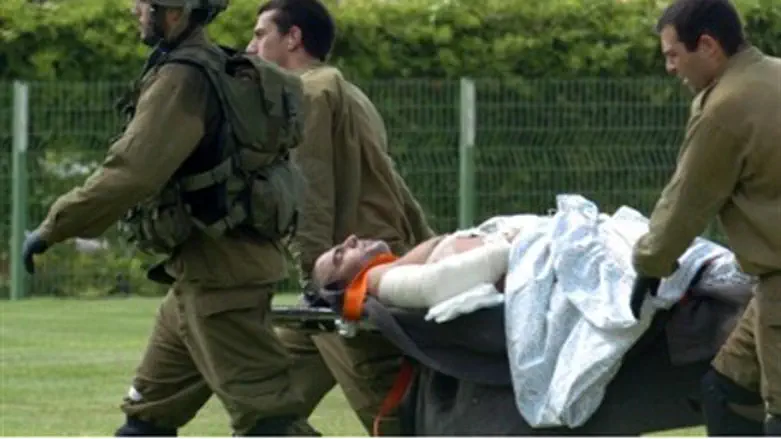
Meir Shovovits was spending a year of Torah study in Israel three years ago. Afterwards, he enlisted and now has been awarded with a citation of excellence from his unit defending Israelis from Gaza terrorists.
Staff Sgt. Shovovits told the IDF Website in an interview he had not planned to enlist.
“It was very sudden; even my family was surprised,” he said. “I arrived in Israel in order to learn in a yeshiva.
“And after a friend of mine, with whom I had volunteered at the fire department, joined, I followed suit. I had served as a paramedic in the U.S. and wanted to use that skill and help my second country.”
He still has plans to visit the United States, explaining that he has “two countries: the country in which I lived and to which I shall return when I am released in the near future, and the Jewish state – which is my country as well, and to which I wanted to contribute.”
Having been a paramedic in the United States, he wanted to offer his services in Israel. “I was initially supposed to serve a one-and-a-half-year term as part of the Machal program [for volunteers from abroad], but was later informed that in order to become a paramedic, one must sign up for a three-year term,” he said.
“It was not an easy decision to sign another year-and-a-half; I was already 22 years old, and knew I was going to be 25 when I finished, and it was not something that had been in my plans. Now that I am approaching my release, however, I don't regret it,” Shovovits continued.
“I arrived at the 13th Battalion of the Golani [Brigade], where I served as a paramedic. One of the reasons I wanted to enlist was to become a more serious and mature person – a better person – and I feel the combat work in the 13th [Battalion] improved me as a person and made me more responsible. Later on, last January, I transferred to the Gaza Division, where I currently serve as supervisor of the on-call staff of the intensive care unit.
“We are summoned during every incident that occurs in the sector – when there are shots [fired] or an infiltration through the [border] fence, I join the staff, and if there are any injured, I provide them with [medical] care.
“I'm also responsible during car accidents and missile attacks – recently we cared for a baby who was hurt as a result of a rocket that struck a nearby car. Also, when a person is feeling ill and needs an experienced caretaker, I am responsible – I have [handled] cases of appendicitis, stomach problems, and heartbeat disturbances, for instance.
“One of the main things we take care of is migrants who are shot at by the Egyptians. It's not an easy task; it's difficult and mandates a lot of willpower. One needs to be aware of the numerous challenges. I do not regret that I came and contributed; I don't complain.”
He receive his citation for excellent service before Rosh Hashannah, and his parents came from the United States for the ceremony,
Like other “lone” soldiers, Shovovits has an “adopted” family and slept in the family Sukkah in Efrat during the recent holiday of Sukkot.
“During the first holiday in service, the Chief of Staff came to join us for the [Passover] Seder and even though I was offered the chance to return home, I knew this was going to be a unique experience,” he said,
“And, indeed, this was a very familial experience. It's something I realized for the first time when I had problems with my phone, and because of the language I had difficulties repairing it. My commander went with me to a mobile phone shop, and assisted me in talking to them and explained to me what exactly I was paying for. I felt then what it was like to be in the army and what it meant to be the best commander there is. I have family within the military as well."